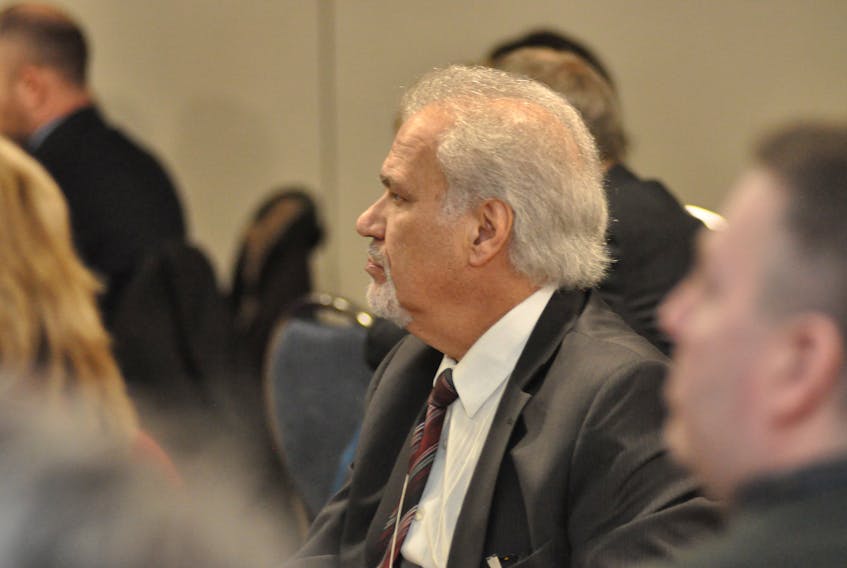Delays in the system seemed to be a common theme discussed by participants in a criminal justice summit that took place in Corner Brook on Friday.
Robby Ash was one a few private practice lawyers who participated in the summit hosted by the Department of Justice at the Glynmill Inn. The summit was held to hear what those who work in, or closely with, the system feel are the issues affecting it, and possible solutions to those issues.
Related stories
Andrew Parsons looking for solutions to issues at criminal justice summit in Corner Brook
Ash sat at a table with a Supreme Court judge, an MHA, someone from the Corner Brook Status of Women Council and representatives of an aboriginal group and the John Howard Society.
“(They were) People who deal with all different stages and different types of players in the criminal justice system,” said the Corner Brook lawyer.
He said it was an opportunity for a frank and open discussion and that’s exactly what happened.
“A lot of times we disagreed on things and sometimes we tried to persuade different people as to why we feel a certain way,” he said.
But he said there was no concern about expressing their own view or fear of what someone may think.
Delays in the court process was the most frequent topic discussed at his table, including the time it can take to get disclosure in a case.
A possible solution offered would be to a have a disclosure clerk at each Crown attorney’s office. A paralegal-type person, who would be responsible for vetting disclosure packages and getting them out.
“So, you can actually have prosecutors prosecuting instead of doing paperwork,” said Ash.
It’s something that could be implemented right way and would not be an expensive fix.
“And it would result in people being processed quicker through the system.”
Issues with the Stephenville court house in terms of security and backlog were also discussed, as was how to address the issue of repeat offenders.
“Are there better ways of dealing with people who are in the criminal justice system rather than using the criminal justice system?” Ash asked.
Opting for the practice of first nations and aboriginal groups by using sentencing circles was one option suggested and an adult diversion program was another.
Court time is a concern for Northern Peninsula lawyer Jim Bennett.
About 10 years ago, Bennett said the province cut circuit time on the Northern Peninsula from 50 days to 40 days and did away with circuit courts in Roddicton and Plum Point.
There are still circuit courts in Rocky Harbour, Port au Choix and St. Anthony, and while they work very well and do as much work as they possibly can, Bennett feels more court days are needed.
Last week on the Port au Choix circuit, Bennett had matters where disclosure wasn’t ready that were set for the next circuit on June 19.
Bennett said what happens is some things end up being transferred to Corner Brook to be dealt with quicker, which means travelling long distances and dealing with the costs of doing so.
“It means that the people are not being that well served on the Northern Peninsula.
“So if we had our 10 sitting days back that would give us more time in St. Anthony and Port au Choix.”
Delays in getting disclosure also came up at Bennett’s table.
“Part of it may be a resource issue, but they really are under resourced in some of the police detachments,” he said.
“The police officers are doing a lot of the clerical as well as the policing.”
His table discussed the possibility of having civilian staff do some more of the clerical work associated with providing disclosure.
“The police are probably better utilized in policing.”
Overall, Bennett feels the justice system in western Newfoundland works very well and the tweaking that needs to done can be accomplished with modest adjustments.
Bennett agreed that the discussion at the summit was open and it was important to be there.
“If you don’t go and make your views known you can never really expect change.”









